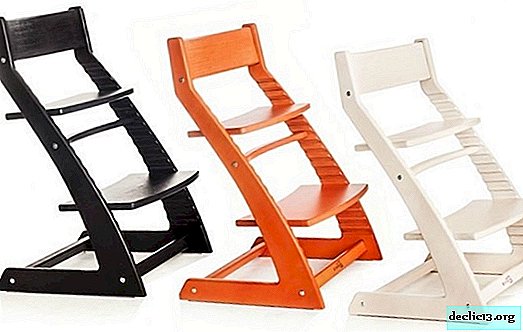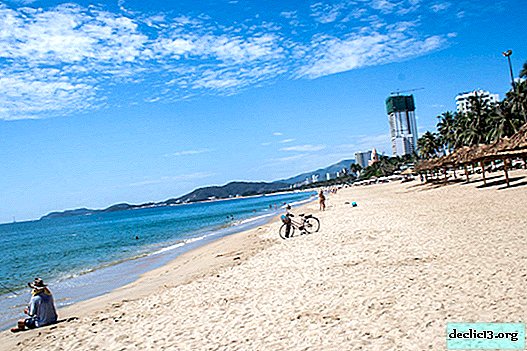Logistics - what is it in simple words, what functions and tasks does it fulfill + 8 criteria for choosing a logistics company
Hello dear readers of the Rich Pro business magazine! Today we will talk about logistics - what is it in simple words, what tasks and goals does it have, and also give tips on how to choose a logistics company.
In the modern world, the issue of cargo transportation is an integral part of the work of any enterprise. Properly organized delivery allows you to save organization resources when conducting commercial activities. Perhaps there is no sphere where such services are absolutely not needed. These and many other tasks are solved by a correctly conducted logistics policy.
Modern universities train specialists in this field, and the science of logistics reveals the secrets of a successful business and teaches you to optimize the flow of materials, tools and information.
From this article you will learn:
- What is logistics and what are its tasks;
- What types of logistics are there;
- How to choose the right transport company for cooperation;
- On the specifics of Russian logistics and the logistics profession itself.
This article will be useful for beginners. logisticians, business representativeswho want to optimize the transport process, organize logistics control within the enterprise itself (for example, a business based on the dropshipping system), as well as choose the right partner for long-term and profitable work in the field of cargo delivery and forwarding.
Want to get acquainted with all the intricacies of logistics science? Then read about it right now!
 About logistics - what it is and what functions and tasks it has, how to choose a logistics company and who is a logistician - read more
About logistics - what it is and what functions and tasks it has, how to choose a logistics company and who is a logistician - read more
1. What is logistics in simple words - a complete overview of the concept 📋
🔔 Logistics - this is modeling, the control and rationalization the process transfer of goods, of servicesor of informationfrom supplier to consumer. It can be assessed as strategic supply chain management. Logistic control is aimed at reducing costs in the implementation or transfer of material, financial and information flows.
The logistic structure can be represented by the following processes:
- management on the part of the buyer or consumer, in order to minimize costs;
- management on the part of the supplier, aimed at increasing the profitability of the supply.
The process of logistic management cannot be reduced to one constant action; it includes several aspects at once:
- execution of contracts;
- inventory management system;
- product delivery scheme;
- close communication with customs authorities;
- monitoring market demand;
- etc.
To optimize this process, a variety of logistics models are used at various stages. Some of these models can be attributed to marketing, but they all come down to the ultimate goal - increase profitability of commercial activities.
Logisticsas an independent area, arose due to a number of difficulties, related to the delivery of goods.
There are specialized logistics organizations that are contacted by entrepreneurs and legal entities that do not have their own logistics department.
Although, in fact, logistics arose a long time ago. Even during the agrarian society, there was international trade, and its participants tried to reduce the cost of transporting goods. In the current economic conditions and industrial scale of production, logistics has reached a new level.
Logistics costs are one of the largest items in determining the cost of production.

2. Tasks, functions and goals of logistics 📑
The subject of logistics science is the state material, financial or information resources at various levels in a particular system and the optimization of their flows.
Purpose of logistics is to increase the efficiency of the economic system through the management of logistics processes.
Among the tasks of logistics can be identified:
- commodity flow management;
- development of a system for managing the flow of goods, services and information;
- market monitoring and identification of demand for materials and goods, forecasting the future market situation.
Logistics includes the following concepts:
Logistic operation - operations aimed at changing material flows or service flows.
Logistic system - This is a system for planning and implementing all logistics operations.
In modern science, logistics systems are divided into:
- direct (establish communication between the supplier and the consumer);
- intermediary (include at least one additional participant).
Material flow - an object of logistic actions, which is measured by physical indicators of weight, size and time.
Logistics function - aimed at improving the operational efficiency of actions at one stage or another of the logistics process.
Among them are:
- transport services;
- storage of products;
- purchase of goods;
- stockpiling.
Logistic Costs - expenses associated with the conduct and execution of logistics operations. They can become components of marketing expenses or be included in the cost of production.
In fact, the formation of a logistics system is a balancing of production interests and ensuring liquidity.
The effectiveness of the logistics system directly depends on the volume of stocks available to the organization, which can be represented in the form of a comparative table:
| No. p / p | Indicator | Many stocks | Few stocks |
| 1 | Logistic Costs | above (-) | lower (+) |
| 2 | Working capital benefits | below (-) | higher (+) |
| 3 | Adaptability to increase or decrease in demand by quantity | higher (+) | below (-) |
| 4 | Likelihood of breach of contract | lower (+) | above (-) |
| 5 | Logistics system control | easier (+) | more difficult (-) |
| 6 | Adaptability to increase or decrease the assortment of market needs | below (-) | higher (+) |
From this table it is seen that the number of stocks of the enterprise determines that the work of the logistics system is related to the amount of resources of the enterprise.

3. The concept and main types of logistics - the 7 most popular types ✈🚚⛴
The logistics management process includes various components that ensure optimal results of this system. Based on this, several types of logistics can be distinguished.
1) Transport Logistics (Transport Logistics)
Determination of the most profitable route for the movement of funds, ensuring the transfer of material resources in the right amount and the necessary time from one point to another, with a view to further processing, redistributing or consuming these resources.
2) Customs Logistics
Exercising control over the material flow passing through state borders.
Customs logistics allows you to solve several problems at once:
- the implementation of the transportation of goods;
- obtaining the necessary certificates for imported goods;
- registration of customs documentation;
- assessment of the value, condition and compliance with the customs requirements of the goods;
- accompaniment of further movement of cargo that has passed the customs border;
- ensuring compliance with currency legislation.
Customs logistics is obliged to take into account legal customs requirements and costs associated with their implementation.
3) Production logistics
When production resources go through several stages within the enterprise itself in the process of creation and processing, it is necessary to establish control over this process in order to optimize it.
Production logistics deals with this by solving the following tasks:
- coordination of work schedules carried out in various production units;
- compliance of the deadlines for the implementation of work by all departments with the processes of purchasing resources and selling products;
- identification of consumer needs in order to effectively plan the production process;
- quick response to malfunctions of the production, its adjustment and monitoring of tasks in a given time.
4) Stock logistics
The main objective of inventory logistics is to establish a continuous, uninterrupted process for the production and sale of the product. Its solution is carried out by monitoring the available stocks of goods and production resources, taking into account risks, seasonal specifics and constant supplies
5) Procurement Logistics (Supply Logistics)
It controls the movement of material flows, providing the production process with the necessary resources. It includes the supply of production, the supply of materials, their storage until release into production.
The need for logistics supply is determined by:
- Uncoordinated supply process inevitably entails a simple production. It is necessary to control the procurement in terms of quantity, quality, organization of supply, packaging integrity and assortment.
- More than half of the cost of goods produced is created precisely in the supply process.
In order to increase and maintain the required level of business competitiveness, the organization of supply logistics is mandatory. For this, constant monitoring of the market for purchased materials is carried out and the profitability of procurement or independent production of the necessary raw materials is determined.
6) Information Logistics
This area of logistics deals with the control and coordination of data flows, which go in addition to the material. In relation to the enterprise itself, such flows can be divided into domestic and external, and within the organization - horizontal and vertical.
The provisions of information logistics are determined by internal regulations on document management at the enterprise.
In cases of desynchronization of material and information movement, importantso that the information does not go ahead of the material.
If it is impossible to synchronize the material and information flows, it is desirable that the information flow is somewhat ahead of the material.
7) Warehouse logistics
This type of logistics is aimed at controlling the operation of the warehouse - acceptance, storage, delivery of materials. Issues such as the optimal location of warehouses and the maintenance of inventory accounting, which directly affects the assessment of the cost of production in accounting, are also determined.
Warehouse Logistics also solves the problems of organizing a warehouse economy, optimizing the location of warehouses. The nature of stock accounting can affect the accounting estimate of cost.
 Logistic company - the main criteria for choosing a logistician. the company
Logistic company - the main criteria for choosing a logistician. the company
4. How to choose a logistics company - TOP-8 selection criteria 📝
The Russian market of logistics services is represented by many companies. It has no monopolies and high competition, but the quality of the services provided is not always of the proper level.
There are several criteria.which should be used when choosing such a company, even in a poorly studied region.
Criterion 1 The carrier must have its own fleet, otherwise it is an intermediary, which will increase the cost of transportation. Ask the company whether it even has a car on lease and intends to seriously provide services or whether the company provides exclusively intermediary services.
Criterion 2 The carrier company must provide guarantees. The contract must indicate the exact time of delivery of the goods and travel time.
Criterion 3. If the company does not have its own fleet or is insufficient, the use of the services of transport companies is necessary. But, even if you have your own means of transportation, it makes sense to estimate the costs, perhaps delivery by a logistics company will be cheaper.
The fact is that those companies that specialize in transportation have more opportunities in this area due to cost savings, through the formation of groupage cargo in one direction and preferences in the wholesale purchase of fuel, servicing vehicles and more.
Criterion 4. Carrier liability insurance is an important aspect that allows you to obtain guarantees of the safety of the goods or compensation for damage in the event of an insured event.
Criterion 5. It is necessary to compare the conditions and cost of several carriers at once.
Criterion 6.The ability of a logistics company to work with non-standard orders indicates its seriousness. It is possible to conclude an additional agreement on the provision of alternative transport, in case of urgent need, of course, that the tariff will be higher.
Criterion 7. It is important to read reviews about the company’s work through the Internet.
Criterion 8. Particular attention should be paid when using additional services of a customs broker. Errors in paperwork can significantly delay deliveries.
5. The main problems and features of Russian logistics 📊
In Russia, the situation in the field of logistics is not the most favorable. This is due to climatic conditions, large distances, the condition of the road surface and the technical capabilities of transport.
In the world ranking of the effectiveness of the logistics system, Russia takes the position 90+ of 155.
Transportation costs in the Russian Federation are much higher than the global average and amount to about 20% of GDP, this is primarily due to the specifics of the Russian Federation's actions on the international market as one of the largest suppliers of raw materials, as well as territorial dimensions.
Russia has a number of problems in the field of logistics:
- high level of prices for warehouse and handling services;
- the hidden nature of many costs;
- non-performance of the parties to the contract;
- unstable market conditions and inefficient sales planning;
- poor development of transport infrastructure, limiting economic growth to the limit of 4% per year, at best;
- limited number of suppliers;
- lack of qualified personnel and, as a result, erroneous logistic models;
- difficult natural conditions in most of the regions.
Due to the crisis, many logistics systems are shrinking, which leads to a decrease in the profitability of many sectors of the country's economy. However, in the face of declining competition, more “strong” firms remain that are able to maintain an appropriate level of logistics services and occupy vacant niches in the market.
6. Who provides logistics services - an overview of the TOP-5 companies in the Russian market of logistics services 📄
There are many private carriers and large logistics companies on the Russian market that can provide a wide range of services and operate across the country or most regions.
1) Business lines

The largest transport and logistics company in Russia. It has been operating throughout the country for over 12 years and provides a variety of logistics services:
- automobile, rail and air transportation;
- transportation by separate transport;
- the presence of branches and points of delivery of goods in most regions of Russia, Kazakhstan and Belarus;
- groupage cargo transportation;
- the availability of services for the rapid delivery of goods;
- the ability to comply with the temperature regime of transportation using specialized equipment on a special flight;
- the ability to track cargo and alert system;
This company cares about customer peace of mind and monitors the quality of service, guarantees and insurance services are provided.
2) PEK

This company operates throughout the country and has more than 100 representative offices, constantly expanding.
For more than 10 years, PEK has been improving the quality of services and their diversity:
- targeted delivery of goods and pick-up from the client;
- a system for informing customers about the intersection of key points along the route;
- variety of packaging of transported material;
- loading and unloading of delivered goods.
3) Delko

The company has been operating for over 17 years, has more than 1000 units of vehicles and delivers any cargo weighing up to 20 tons with various vehicles in Russia and Kazakhstan:
- refrigerated semi-trailers (± 20C mode);
- semitrailers with an awning - 90 m3;
- tented semi-trailers 110 m3 (16.5 m, 40 pallets) using conics.
4) TTG

The company has been operating for about 5 years in Russia and the CIS, transporting goods from 0.5 to 20 tons, and has more than 5,000 units of various equipment, which allows you to quickly put vehicles for loading in any region of the country and also quickly find a replacement if necessary.
In the electronic database of ATI carriers, TTG has the highest rating and several hundred positive reviews from customers. The company was awarded the “Guarantor of Quality and Reliability” -2014 award and presents its services to many large customers on an ongoing basis.
5) YES-TRANS

This company provides both logistics and forwarding services in full. Transportation is carried out throughout the territory of the Russian Federation, including the Crimean Peninsula, as well as to the CIS countries - Armenia, Kazakhstan, Belarus. There is a possibility of delivery "to the door" of the client. Cargo from 500 kg or 2m³ in volume is accepted for transportation and delivered both by separate transport and by a combined machine. Oversized goods and cargo with the requirement of observing the temperature regime are also taken into operation.
The company's specialists optimize cargo routes, having complete data on the condition of the route, road repair work and traffic jams, which helps to reduce transportation costs.
The calculation of the amount of payment for transportation in any direction is calculated in 15 minutes.
7. What is the difference between forwarding and logistics 📎
Forwarding activity is an integral part of the work of the logistician, but it is limited only to the coordination of the movement of goods, escort and delivery to the destination.
Logistics itself is a broader concept. It implies optimization of material and information flows in parallel with forwarding activities.
The full range of freight forwarding services includes:
- cargo pick-up, transportation and delivery to destination
- loading and unloading of goods;
- control of payment for transportation;
- execution of necessary documents;
- possible services of a customs broker;
- informing the parties to the contract about the route and stage of cargo movement
- etc.
I.e, forwarding activity - This is only one part of logistics.
8. Logistics - what kind of profession is this or who is a logistician 📄
The person involved in logistics activities is referred to as Logistician (logistician).
LogisticianHe is responsible for optimizing the flows of product sales, by performing various tasks to rationalize and increase the efficiency of following material and information flows in a limited time and specify the starting and ending points.
The areas of work of a logistics specialist (manager) are as follows:
- transportations carried out by more than one vehicle under one contract, called multimodal;
- freight forwarding;
- warehouse management and control of storage of materials;
- control of material and technical base;
- filling out and providing the necessary customs documents;
- planning and management within the framework of corporate logistics;
- ensuring control over services related to information, reference and service activities;
- sales control of distribution of inventory items;
- other things.
A successful logistician must master free use computer programs, such as: 1C, Customer bank and other, and also be able to quickly find high-quality and reliable information that is relevant at the moment.
A prerequisite for the activity of a logistician is the ability to make forecasts of sales, purchases and possible transport difficulties, to assimilate and apply statistics data in daily work.
9. Conclusion + video on the topic 🎥
The importance of the proper organization of the delivery of goods during implementation, coordination of procurement processes and control over warehouse operations is undeniable. In this case, it is important to understand exactly what services can provide logistics company, as well as what logisticians should do inside the enterprise.
The effectiveness of any business is directly dependent on costs, including on transport operations. For example, when doing business with China, it is important to understand how much of the cost will be associated with the delivery of goods, since, as a rule, buyers of Chinese “trending” goods (usually goods with a cost of about 10-20 $) have to spend a third of the cost of delivery.
Nowadays, the Russian market is represented by a wide selection of partners in transportation and the range of services provided. Equally important are the guarantees that the forwarder can provide.
Logistics, as a separate industry, has appeared relatively recently, but has already firmly entrenched in the market. Moreover, there are many of its types and directions, with which you have already become acquainted in the article.
In conclusion, we recommend watching the video - what is logistics in simple words and how the principle of work in our country works:

Now you know how important it is to choose the right partner for transportation, what skills a logistician should have, and which companies occupy top positions in the market of logistics services.
Dear readers of RichPro.ru magazine, we will be grateful if you share your wishes, experiences and comments on the topic of publication in the comments below.

















